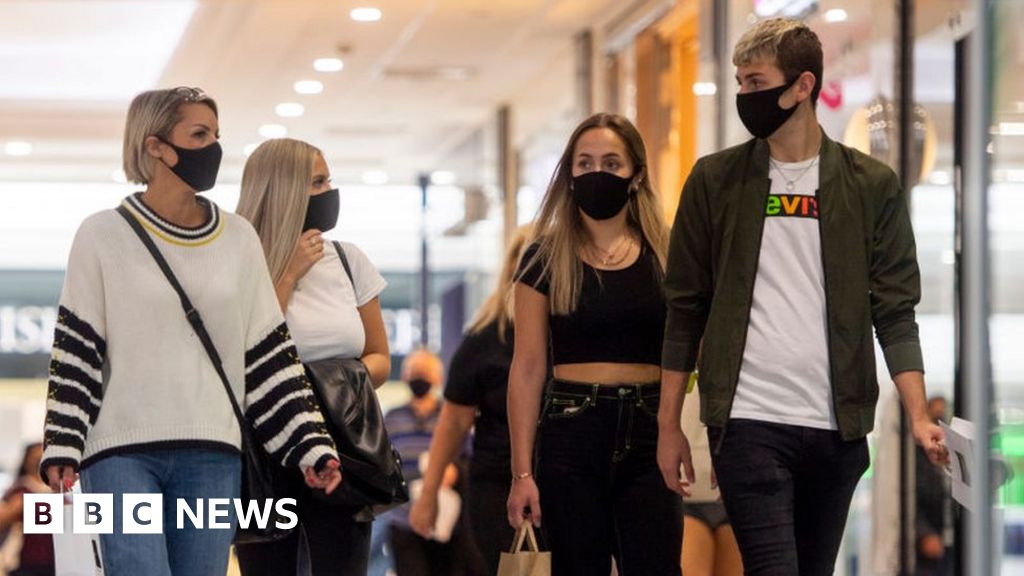image credit: Reuters Customers at Sainsbury’s will be urged to continue wearing masks after the legal need was lifted on Monday. Customers will be reminded to conceal their faces with signage and tannoy messages, according to the grocer. It follows the lead of bookshop Waterstones, which advised consumers to wear masks to protect employees and other customers. From Monday, the government “expects and urges” that buyers wear face masks. The legal necessity to cover your face in enclosed settings, on the other hand, will be lifted. After the Covid requirements are lifted on July 19, the new guideline allows businesses to determine their own safety measures. Customers are split on whether being requested to wear a mask makes them more or less likely to visit a shop or other business, posing a problem for entrepreneurs. Masks will be required on the London Underground and other Transport for London services. Several airlines have already stated that they would continue to ask passengers to wear masks on board. Customers will be left to make their own decisions, according to Timpsons, a shoe repair and key cutting chain, and Beaverbrooks, a jewellery retailer. While plastic screens and other safety measures will remain in place, and staff will continue to wear face-coverings, customers will be left to make their own decisions. Waterstones is encouraging customers to put face masks. Where will I be required to continue wearing a mask? Masks will continue to be required on London public transportation. Sainsbury’s claimed its decision was based on feedback from customers and employees, with the majority of those polled in favor of maintaining the mask policy. “Our colleagues’ safety is paramount, and many of our colleagues would feel more at ease if those who can wear face covers did so,” Sainsbury’s CEO Simon Roberts said. Some Covid measures, such as screens between self-service checkouts and checkout lines, will be phased off over time, according to the chain. Screens between checkout workers and customers, on the other hand, will stay in place. Some employers and unions have criticized the government’s plan, with the TUC calling it “a prescription for increased illnesses.” Paddy Lillis, the general secretary of the shop workers’ union Usdaw, told the BBC that he was “extremely dissatisfied” that the government had “not communicated widely with unions and employers.” “It’s a complete disaster,” he remarked. “Rather than having the power of law behind them,” Mr Lillis added, “it will generate misunderstanding and put more shop workers at risk.” image courtesy of Getty Images “Face coverings are no longer required by law,” the government advises. In crowded, enclosed spaces, however, the government expects and recommends that persons continue to wear a facial covering.” This would include offices, factories, shops, construction sites, and close-contact services like hairdressers and beauticians, according to the report. The government stated that any return to work would be “gradual” and that companies should continue to apply risk assessments, thorough cleaning, and proper ventilation to prevent the spread of Covid. However, much of the guidance’s phrasing involves “encouraging” businesses, employees, and consumers to “consider” steps that are already commonplace, such as hand-washing, sanitizer use, and contactless payments. The instructions were “issued without adequate consultation with unions or businesses, barely two full working days before restrictions lift on Monday,” according to Frances O’Grady, the TUC’s general secretary. “The government is abandoning employees and businesses instead of offering clear and consistent instructions on how to keep personnel safe at work,” she said. The Institute of Directors, an employer’s group, said the guidance “fails to inspire confidence in the return to work.” “Like everyone else, businesses throughout the country have been waiting for ‘freedom day’ with bated breath,” said Dr Roger Barker, policy director of the Institute of Directors. Instead, the government has sent us a series of conflicting messages and patchwork requirements, dampening our enthusiasm.” copyright to the image courtesy of Getty Images The British Retail Consortium, which represents large retailers, said that during the epidemic, violence and abuse towards store workers had increased, and that “colleagues cannot be put in the firing line because of this change in policy.” Helen Dickinson, the trade body’s chief executive, said consumers will be asked to be “considerate of people around them” while deciding whether or not to wear a face covering. Waterstones is one of the first large retailers to declare a clear policy on mask use, and will encourage customers to do so after July 19. Babtac, the trade association for the beauty industry, said it will work with members to provide additional clarification. Lesley Blair, the head of Babtac, told the BBC that, while masks are no longer required by legislation, the organization “would absolutely advise” its members to wear them for the time being, especially when working in close proximity to customers. Lockdown measures for the Coronavirus Coronavirus epidemic at Sainsbury’s/n
Read MoreMasks ‘expected’ to be worn in shops after 19 July
2021-07-14T16:46:09-04:00July 14th, 2021|





